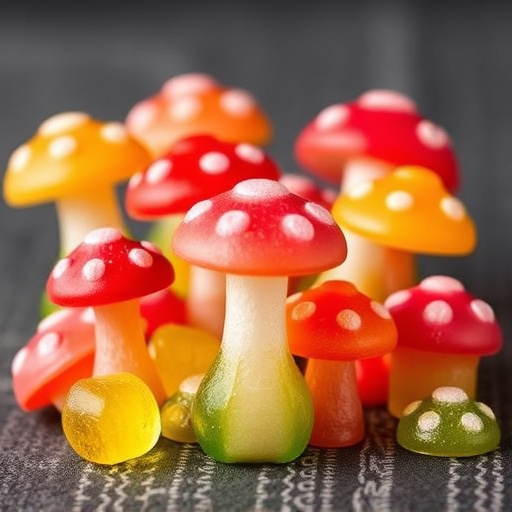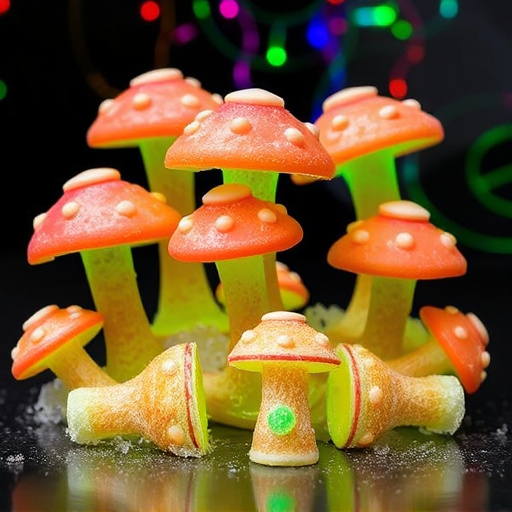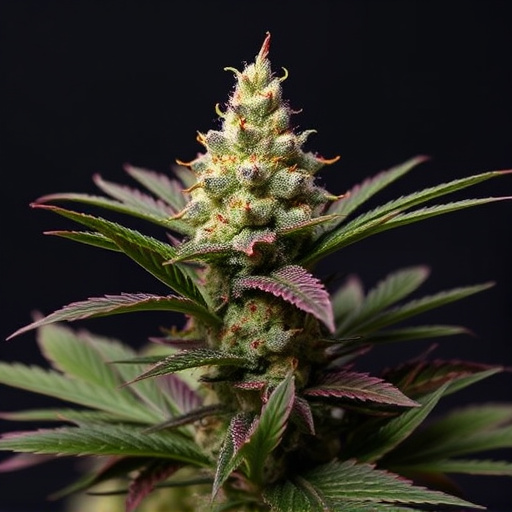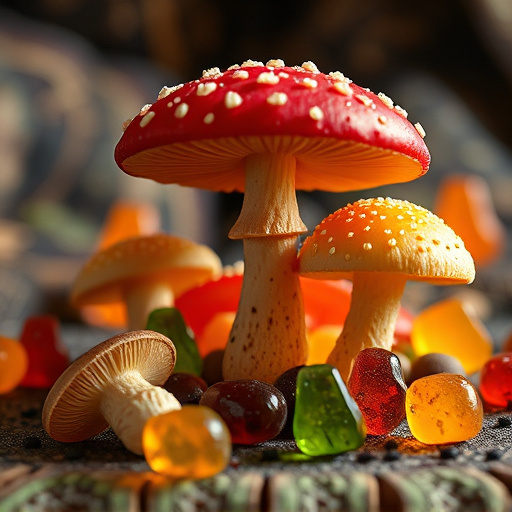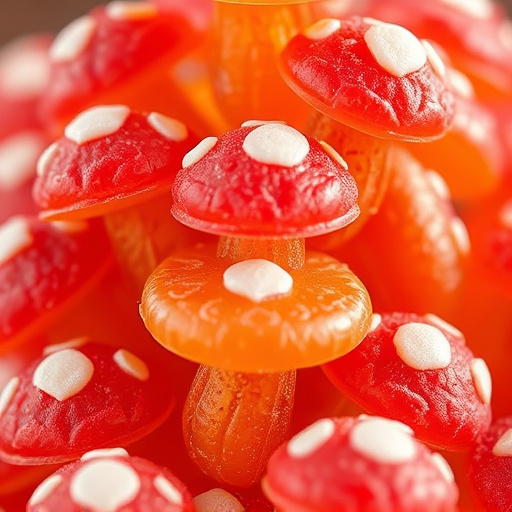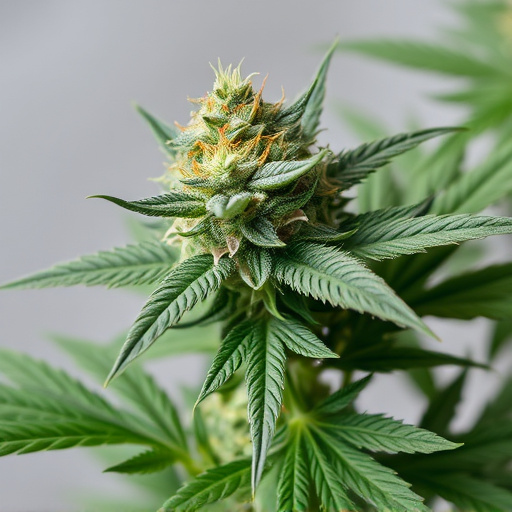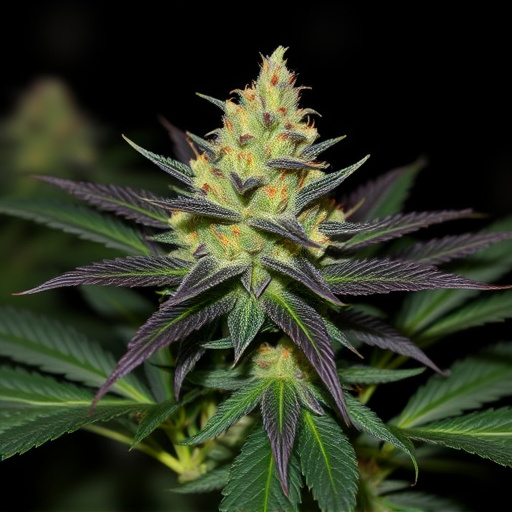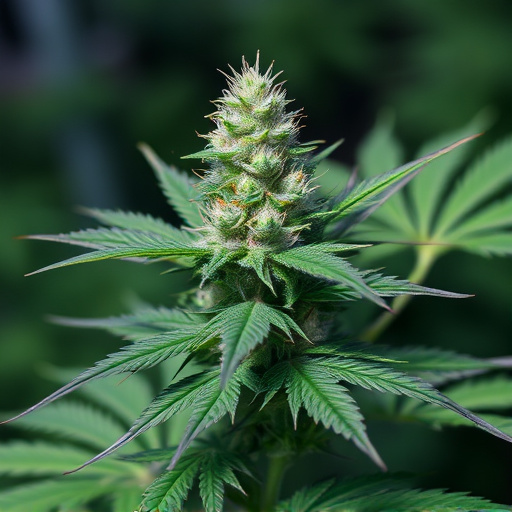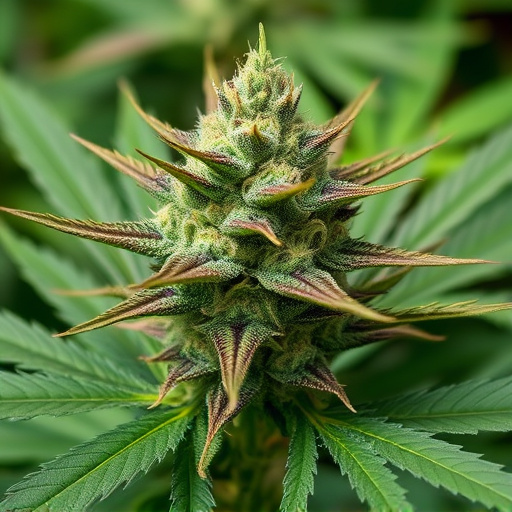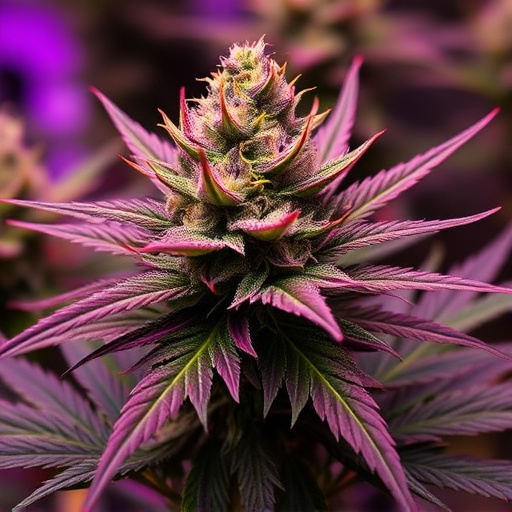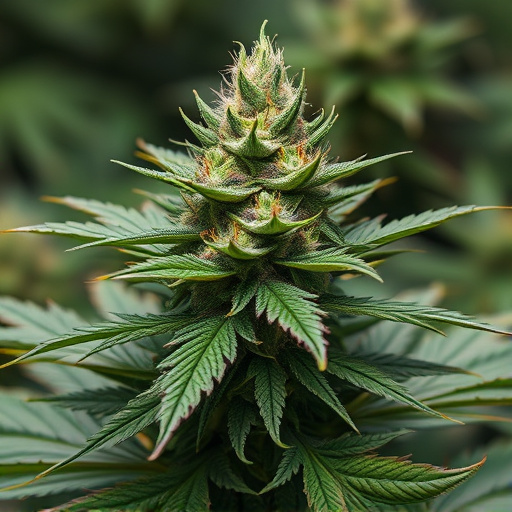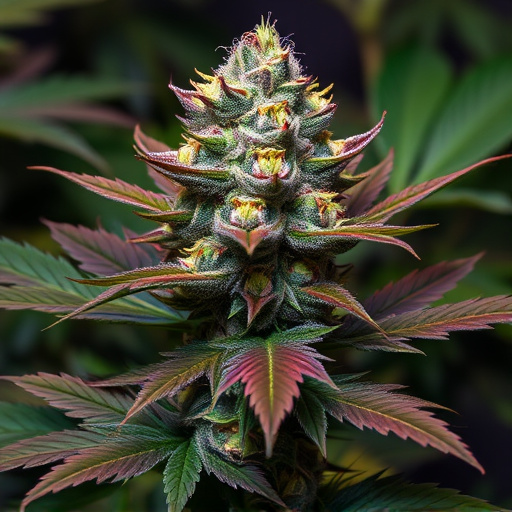Potent cannabis strains interact with brain chemicals dopamine and serotonin, regulating mood, pleasure, and reward. Cannabinoids like THC mimic endocannabinoids, boosting dopamine release for euphoria but chronic use may downregulate receptors. While offering potential therapeutic benefits for mood disorders and pain, excessive consumption can cause mood alterations and anxiety due to overstimulation of the endocannabinoid system. Responsible cannabis use and informed strain selection are crucial for maintaining well-being.
In the realm of neurochemicals, dopamine and serotonin regulate mood, reward, and motivation. When it comes to cannabis, understanding its complex relationship with these neurotransmitters is crucial. This article delves into the intricate dynamics between cannabis and dopamine, exploring how specific compounds in potent cannabis strains can either enhance or disrupt serotonin levels, offering insights that shed light on both the potential benefits and risks of cannabis consumption.
- Understanding Dopamine and Serotonin: The Neurotransmitters of Reward and Mood Regulation
- Cannabis and its Impact on Dopamine: A Complex Relationship
- Potent Cannabis Strains: Enhancing or Disrupting Dopamine and Serotonin Levels?
Understanding Dopamine and Serotonin: The Neurotransmitters of Reward and Mood Regulation
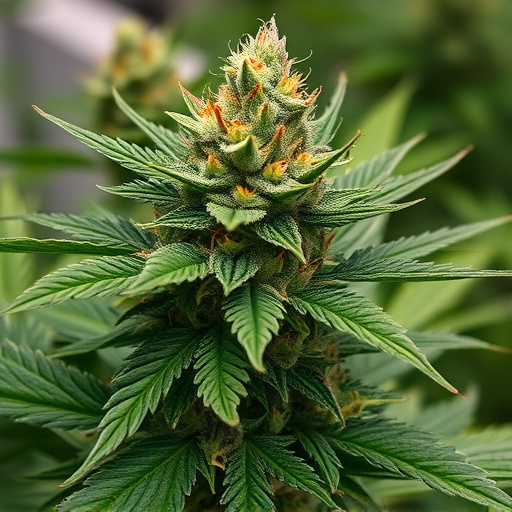
Dopamine and serotonin are two key neurotransmitters that play vital roles in regulating mood, pleasure, motivation, and reward in the human brain. Often referred to as the “feel-good” chemicals, they influence our emotional states, cognitive functions, and behaviors. Understanding these neurotransmitters is crucial when exploring how potent cannabis strains interact with our bodies.
Dopamine is primarily associated with reward and motivation, stimulating feelings of pleasure and reinforcement of rewarding behaviors. Serotonin, on the other hand, contributes to mood regulation, sleep, appetite, and perception. When we consume cannabis, certain compounds known as cannabinoids bind to receptors in the brain that regulate these neurotransmitters. This interaction can lead to various effects, including alterations in mood, perception of pleasure, and even potential therapeutic benefits for conditions related to mood disorders and chronic pain.
Cannabis and its Impact on Dopamine: A Complex Relationship
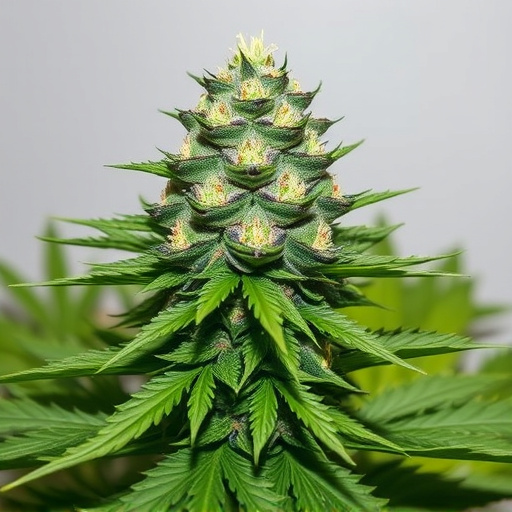
Cannabis and its complex relationship with dopamine is a fascinating area of study in neuroscience. Dopamine, often referred to as the “feel-good” neurotransmitter, plays a significant role in reward, pleasure, and motivation. Potent cannabis strains contain various compounds called cannabinoids, notably THC (tetrahydrocannabinol) and CBD (cannabidiol), which interact with our endocannabinoid system. When consumed, THC mimics the effects of anandamide, a natural endocannabinoid, binding to receptors in the brain associated with dopamine release. This interaction can lead to heightened pleasure and reward responses, explaining the euphoric sensations often associated with cannabis use.
However, the impact of cannabis on dopamine levels is more intricate than it seems. While THC stimulates dopamine release, chronic cannabis use may also downregulate dopamine receptors, potentially leading to reduced sensitivity over time. This complex interplay suggests that the effects of cannabis on dopamine could vary depending on frequency and dosage. Understanding this relationship is crucial in navigating the potential benefits and risks associated with potent cannabis strains, offering insights into its therapeutic applications and the need for responsible use and research.
Potent Cannabis Strains: Enhancing or Disrupting Dopamine and Serotonin Levels?
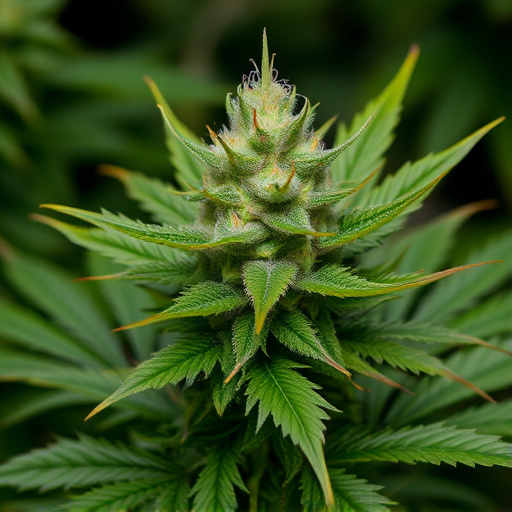
Potent cannabis strains have gained significant attention for their potential impact on brain chemicals like dopamine and serotonin, which play key roles in mood, pleasure, and reward. While moderate use may lead to temporary boosts in these neurotransmitters, triggering feelings of euphoria and relaxation, excessive or chronic consumption could disrupt their natural balance.
Research suggests that certain high-potency strains, rich in THC (tetrahydrocannabinol), can stimulate dopamine release, enhancing pleasure and reward responses. However, prolonged exposure to such potent compounds may overwhelm the endocannabinoid system, potentially leading to desensitization or even disruptions in serotonin regulation. This can result in mood alterations, anxiety, or other psychological effects, highlighting the importance of responsible cannabis use and strain selection for individual well-being.
In conclusion, understanding how cannabis interacts with neurotransmitters like dopamine and serotonin is crucial. The complex relationship between cannabis and dopamine highlights both its potential to enhance rewards systems and disrupt mood regulation. While potent cannabis strains may offer therapeutic benefits for some, their impact on dopamine and serotonin levels remains a double-edged sword. Further research is essential to navigate this intricate interplay, especially when considering the growing popularity of potent cannabis strains.
